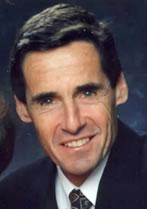
Ph.D., University of Pittsburgh
My entire research career has revolved around a search for the causes of structured inequalities, e.g. gender, race, ethnic, age, the impacts that various inequalities have on individuals, institutions, and the fabric of community, and a study of "solutions" to these inequities. Toward this end, I have developed exchange methodology in order to gain entry to alienated and research-cynical groups while at the same time providing those groups with the power that stems from research knowledge. My studies of Boston's Chinatown, the neighborhood health centers for the poor, and the Native American community needs assessment (National Indian Research and Training Center) are the best examples of my exchange methodology. The outcomes of those studies all involved significant policy movement toward citizen control of the health and education institutions at local community levels.
The 20-year longitudinal study of the rural elderly which I have worked on since 1972 is a study of social cohesion and its relationship to longevity. This age cohort, born around the turn of the century, evidenced social network patterns and attitudes associated with cohesive groups with a strong sense of community. In spite of rather low socio-economic status, the rural elders derived great social support from their large social networks. This seemed to have protected them from the stresses of life, particularly those associated with poverty. This resulted in long and healthy lives. These data offer a rare glimpse into social networks as community. I have extended this research by spending three years at Gothenberg University, Sweden, analyzing a combined cross-national longitudinal data set of the Missouri rural elders and the Gothenberg HO study of urban elders. On the basis of this analysis, I and colleagues in Sweden are designing a cross-national longitudinal study of aging that will include social networks and measurement of the immune system. The Swedish data showed a strong relationship between the immune system, social support, and longevity. We are conducting a 100 member pilot study currently in order to validate measures of social support and of the immune system.
Finally, I am studying peer mediation of conflict and violence in elementary schools as a strategy for resolving and even preventing violence through the building of social cohesion and a sense of community. Goffman's Frame Analysis is the theoretical basis for this study.
Teaching
- Research Methodology
- Service Learning in Sociology
- Social Research I
- The Sociology of Aging
- The Sociology of Sport
Richard M. Hessler, Steve Hollis, and Cherie Crowe, "Peer Mediation: A Qualitative Study of Youthful Frames of Power and Influence," Mediation Quarterly, 15 #3 Spring 1998, 187-198.
Bog. Erikson, richard M. Hessler, Valter Surdh, and Bertil Steen. "Cross-Cultural Analysis of Longevity Among Swedish and American Elders: The Role of Social Networks in the Gothenberg and Missouri Longitudinal Studies" (?). Archives of Gerontology and Geriatrics 28 (1999) 131-148.